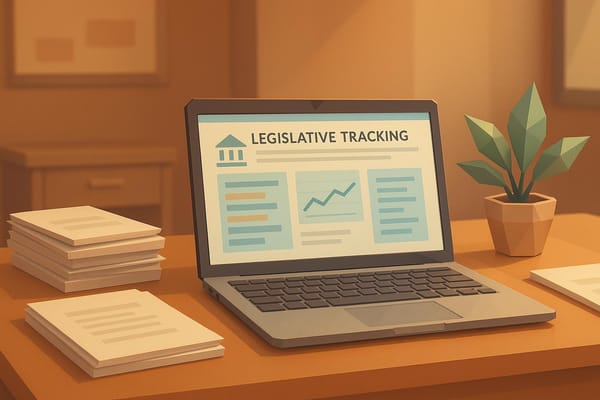Alabama's New Automatic Sealing Bill

In a significant legislative move, Alabama's House Bill 11 aims to reform how the state's criminal justice system manages criminal records. This bill addresses a pressing issue faced by many individuals with criminal convictions: the challenge of moving forward after serving their sentences. The automatic sealing of certain records after a specified time presents an opportunity for those affected to reintegrate into society without the lingering stigma of past mistakes. Understanding the implications of such legislation is critical as it could reshape the lives of countless Alabamians seeking a fresh start.
This blog post will delve into the main components of HB 11, highlighting its eligibility criteria, the automatic sealing process, and the notable exceptions that exist within the bill. We will explore how the bill promotes public safety while also balancing the rights of individuals who have successfully completed their sentences, ensuring that the path to redemption is clear and accessible.
Overview of the Legislation
House Bill 11, introduced by Representative Givan, seeks to establish a system for the automatic sealing of criminal records for specific offenses, provided the individual has satisfied their sentence. This system is set against a backdrop of existing laws that already allow for expungement in certain situations, but HB 11 offers a streamlining of this process through automation.
The bill categorizes offenses into various groups, determining the timeframe for sealing records based on the nature of the offense. For instance, felony convictions can be sealed eight years post-release, while misdemeanors can qualify for sealing after three years.
"This bill provides that certain criminal convictions are automatically sealed... after an individual has satisfied his or her sentence and a required period of time has passed."
This automatic approach not only reduces the burden on individuals to petition the courts for expungement but also encourages accountability within the criminal justice system.
Eligibility Criteria
To benefit from the automatic sealing proposed in HB 11, individuals must meet specific eligibility criteria. As noted in the bill, those convicted of Class A felonies, sex offenses, or with pending criminal charges will not qualify. This ensures that the legislation targets individuals who have genuinely moved past their violations, promoting a justice system that rewards rehabilitation.
Moreover, individuals currently under post-release supervision or those who have failed to comply with their sentencing requirements will also be excluded from eligibility. This stipulation is vital in maintaining integrity within the program, as it prioritizes the safety of the community alongside the interests of offenders seeking rehabilitation.
"An individual is not eligible to have his or her convictions sealed... if the individual was convicted of a Class A felony offense."
Process of Automatic Sealing
The process for automatic sealing will be managed by the Administrative Office of Courts, which is tasked with developing a system to identify and seal eligible records efficiently. Effective from October 1, 2027, this system aims to modernize the workflow, thereby easing the administrative burden and expediting the sealing process.
Once an individual's conviction becomes eligible after the required time has passed, the Administrative Office of Courts is responsible for notifying both the essential law enforcement agencies and the respective court. This proactive stance helps foster a seamless transition where eligible records are promptly sealed without further action required from individuals.
"The Administrative Office of Courts shall seal all conviction records that were eligible for sealing before October 1, 2027."
Disclosure Exceptions
While HB 11 champions automatic sealing, it also outlines critical exceptions concerning when and how sealed records may be disclosed. Certain entities such as law enforcement agencies, courts, and specific employers conducting background checks will still have access to sealed records under defined circumstances.
This provision is essential for maintaining public safety, particularly in sectors where background checks are a routine part of hiring processes, allowing for the necessary evaluation of an individual's criminal history.
"Records of convictions sealed pursuant to this act shall not be accessed... except for all of the following:..."
Impact on Individuals and Society
The implications of HB 11 are profound, as it fosters an environment where individuals can rehabilitate and reintegrate into society without the shadow of their past convictions lingering over them. Automatic sealing serves not only the interests of those with convictions but also the broader community by promoting responsible behavior post-rehabilitation.
By expediting the process of sealing records for eligible individuals, the bill reduces barriers for employment, housing, and civic engagement. This accessibility aligns with the larger goal of reducing recidivism rates by providing a supportive framework that aids in societal reintegration.
"This act provides for exceptions... including... the individual or his or her attorney, any court... when acting within the scope of their law enforcement duties."
Conclusion
In conclusion, Alabama's House Bill 11 represents a significant advancement in the treatment of criminal records within the justice system. By implementing a framework for automatic sealing of certain convictions, the bill acknowledges the importance of rehabilitation while ensuring public safety is not compromised.
The law recognizes the difficulties individuals face after serving their sentences and provides a structured path towards reclaiming their lives. The bill’s effective approach balances individual rights with community interests, underscoring the importance of fostering a justice system that encourages growth, accountability, and redemption.
Moving forward, the true measure of success for HB 11 will lie in its implementation and the lives it touches, marking a transformative step forward for the state of Alabama in building a more just and equitable society.




